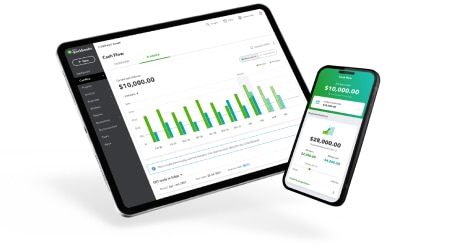What is Cash Accounting?
Cash Accounting Definition
Cash accounting is a method of accounting in which revenue and expenses are recorded when cash is received or paid out. This means that income is recognized only when it is collected, and expenses are recognised only when they are paid.
Under cash accounting, a sale is recorded when payment is received, rather than when the sale is made. Similarly, expenses are recorded as paid, rather than when they were incurred. This method of accounting provides a simple and straightforward way to keep track of a business's finances, particularly for smaller businesses that do not have complex transactions.
Most small businesses use cash accounting because it is simple, easy-to-use, and does not require a high level of accounting knowledge. However, larger businesses and corporations typically use accrual accounting, in which revenue and expenses are recorded when they are earned or incurred, regardless of when cash is received or paid out. This method of accounting provides a more accurate picture of a company's financial performance over time as it accounts for outstanding debts and liabilities.
Cash accounting is often used by small businesses as it provides a clear picture of the company's cash flow and can help with budgeting and managing day-to-day expenses. However, it may not be suitable for businesses that have complex transactions and that need a more accurate picture of financial performance over time.
Here are some more important facts about cash accounting:
- Cash accounting is generally more straightforward and easier to understand than accrual accounting. For small businesses with simple transactions and low sales volumes, cash accounting provides a simple way to track income and expenses.
- Cash accounting does not account for accounts receivable or accounts payable. This means that revenue and expenses are only recognized when cash is received or paid out, even if a sale has been made or an expense has been incurred but not yet paid.
- Cash accounting provides a clear picture of a company's cash flow. This makes it easier to manage day-to-day expenses and to plan for future cash needs. However, it does not provide a complete picture of the company's financial performance over time.
- The Internal Revenue Service (IRS) allows small businesses to use cash accounting for tax reporting purposes, as long as certain criteria are met. This could include having gross receipts of less than $25 million over the prior three years.
- Cash accounting can be used in conjunction with other accounting methods such as budgeting, which provides a detailed plan for how money will be spent throughout the year.
- Cash accounting can make it difficult to track inventory and to accurately account for costs of goods sold if a business has inventory.
In summary, cash accounting provides a simple and straightforward way for small businesses to keep track of their finances, particularly for those with simple transactions. However, larger businesses may find that a more complex accounting system such as accrual accounting is more appropriate for their needs.







